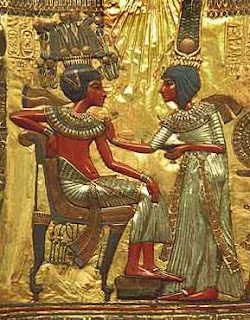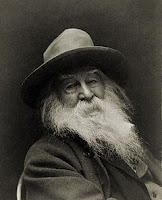“I’ve heard great things about you,” an older woman said, extending her right hand.
“Ms... Ms. Marshy,” I said, startled. “How do you do?” and we shook hands, I felt a firm grip for a woman of her age. I looked at Janice who smiled proudly at me.
Carolena Marshy was a legend. She had been the curator of the textile wing at the museum ever since it was opened and Janice was her protégé. I was told that she once gathered 25 fabric restorers, including Janice, to work day and night so De Young could present its vintage French lace and damask collection. The team pulled it off in just two weeks. The mere thought of seeing and basking in the luxurious views of endless rows of antique lace and burnt velvets made my heart flutter. Ms. Marshy was responsible to begin the heydays for fabric restorers. In a recent interview at a local paper, she said that nobody was taking the job seriously anymore and she felt concerned that it was going to be a lost art.
“He’s been working here for just four months and he’s done wonders in restoring the old Uzbekistan Saye Goshas,” Janice said.
“Yes. I saw his work last month when I visited the museum,” Ms. Marshy said, nodding her acknowledgement.
“Oh, God. I don’t know if I can accept that praise,” I said, ironically looking over at Kimberly and Miller, my two seniors who dumped everything on me. They were in it for the galas, free-flow booze, and mingling with the socialites, they said. I was tempted to tell them they should’ve become poets instead, because they would’ve gotten away with less work and more booze, but I just shut my mouth.
“And modest too,” Janice added. Ms. Marshy smiled. I cringed, worried they would sniff a layer of fakeness.
“Ah, Tulle bi Telli. You’re in for a treat!” Ms. Marshy exclaimed as she saw what I was about to work on: a half-century-old Egyptian tulle shawl with bits of silvery and golden metal pounded and woven into it in geometric shapes as well as figures of the sun, the palm trees, and the huts, making the wearer look as if she or he was draped in liquid silver or gold. These days, two yards of this thing could fetch up to two thousand dollars.
“Yes. This one is in pretty bad shape,” I said, pointing at the holes on the ecru colored fabric and some pieces of metals that were missing. “But still, she’s really pretty.” I must have said that sheepishly because Janice and Ms. Marshy chuckled. I could feel the warmth of her eyes behind those thick lenses. The wrinkles around her lips deepened as she smiled.
“He’s restored three so far,” Janice said.
“That’s seventeen more to go,” I sighed. “And we’re only given ten days.”
“Oh, I’m sure you can do it,” Ms. Marshy said. “Well, off you go, then. You need to get this thing finished before next week so we could preview it, yes?” There was benevolence in her firm, commanding voice.
I nodded. I saw Janice and Ms. Marshy walked around the room but didn’t bother to say hi to Kimberly and Miller who suddenly found something to work on to look busy. I smiled deeply at this, suddenly feeling that I had the best job and the boss in the world, even though I was sure I’d go blind in ten years. And this I confided in Ms. Marshy on the opening night twelve days later when De Young showcased its Egyptian Textile collection, including the twenty gleaming Tulle bi Telli. Ms. Marshy had the ecru with the heavy silvery metals draped around her as a shawl. And later, as we took our champagnes to a corner and let the guests mingle, I told her about how my fascination with fabrics actually began when a thirteen year-old Craig O’Reilly defied his father and bought his first Barbie doll with the money he had made from making pencil cases and tote bags from denim pants that no longer fit him.
***




